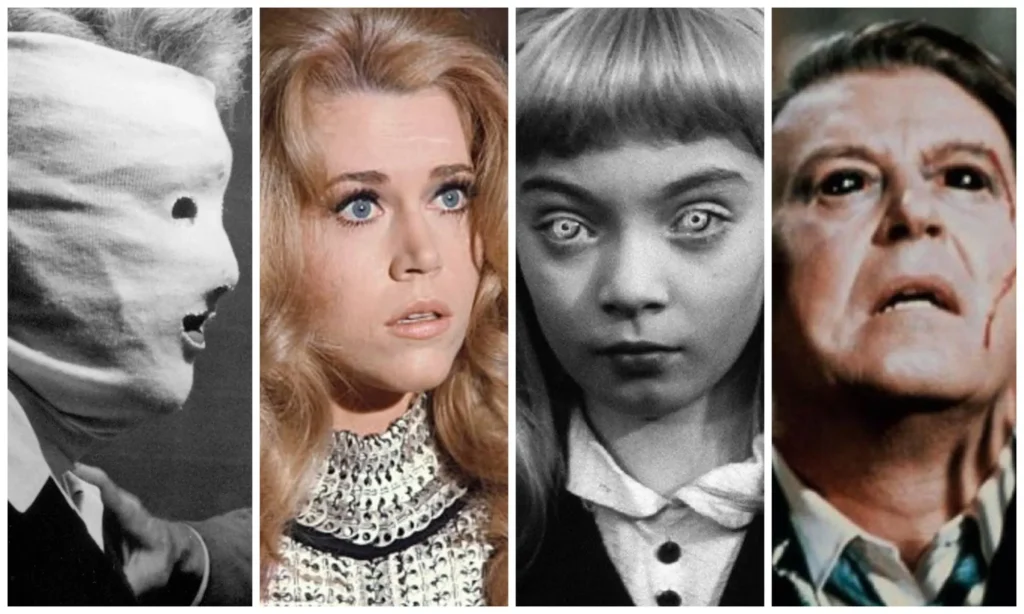Photo Credit ( Freepik )
Theater attendance fell in the 1960s as televisions gained popularity. In the suburbs, brand-new megaplexes appeared as many downtown cinemas shuttered. Hollywood was producing fewer pictures by 1962 than ever before, as studios shifted their attention to larger-than-life spectacle blockbusters like “Cleopatra.” Nevertheless, this decade produced a number of well-known treasures as well as beloved movies like “Mary Poppins,” “2001: A Space Odyssey,” “The Sound of Music,” “Psycho,” and “The Graduate.” Here are a few 1960s songs that I personally think you haven’t heard before.
Two for the Road (1967) Starring Audrey Hepburn and Albert Finney, “Two for the Road” is a brilliant anti-romantic comedy by director Stanley Donen. The movie follows the development of a married couple’s relationship over a ten-year period, alternating between happy moments and scenes hinting at their impending divorce. It’s like leafing through a scrapbook, filled with memories of the good times and the bad times in love. Hepburn gives what I think is her best performance yet, capturing her character’s complexity throughout this nuanced relationship.
Charade (1963)
“Charade,” another Hepburn film with Stanley Donen, is a thrilling substitute for “Two for the Road.” You’re in for a treat if you haven’t seen it yet—it also features Cary Grant. I found out about the party after I had been in quarantine in 2020, therefore I was a latecomer. Hepburn portrays a widow who discovers that her late husband had concealed millions of dollars during World War II, drawing the interest of three men who are also vying for the wealth. Her journey across Paris is one of my all-time faves since it’s funny and full of suspense.
The 1963 film It’s a Mad, Mad, Mad, Mad World
“It’s a Mad, Mad, Mad, Mad World,” a three-hour treasure hunt adventure, is another entertaining movie from 1963. Following their observation of a car catastrophe, a group of drivers discovers a hidden bag of cash and launches an insane search for it. The movie strikes a perfect balance between humor and excitement, and I can only image how much fun it would have been to see it in theaters when tickets were only 85 cents!
1962’s The Miracle Worker
I’m not usually moved to tears by movies, but “The Miracle Worker” does. Starring Patty Duke as Helen Keller and Anne Bancroft as her tutor, Anne Sullivan, it is based on William Gibson’s drama. It was eye-opening to see the genuine emotion of the original after watching a milder TV adaptation. It doesn’t hold back when describing the difficulties Keller and her tutor had, which makes the emotional victories all the more satisfying.
The 1961 film Cash on Demand
I found this little-known British movie, which stars Peter Cushing as Grand Moff Tarkin from “Star Wars,” to be a hidden gem in October 2020. Set on Christmas Eve, the narrative proceeds virtually in real time as a bank manager is coerced into assisting a thief in stealing a substantial quantity of cash. In the midst of the suspense, you find yourself pulling for Cushing despite his frigid, Scrooge-like persona.
The Face of Another (1966), Pitfall (1962), and Woman in the Dunes (1964) are just a few of the films directed by Hiroshi Teshigahara that frequently explore psychological trauma. In the film “Woman in the Dunes,” a lover of the outdoors gets stuck in a community encircled by sand dunes and must assist a widow with her eerie duties. The idea is both intriguing and unnerving. Even though they are considered avant-garde, Teshigahara’s other 1960s pieces, such as “Pitfall” and “The Face of Another,” are equally captivating and approachable.
1962’s The Exterminating Angel
“The Exterminating Angel,” directed by Spanish filmmaker Luis Bunuel, is a thought-provoking examination of psychological stress. The story takes place at an opulent dinner party where the attendees are unable to leave for some reason. The visitors lose control and exhibit their most basic tendencies as their frustration grows. This picture is a memorable experience because of Bunuel’s distinctive style and self-assured storytelling, which are evocative of the influences it had on later directors such as Darren Aronofsky.


Leave a Reply